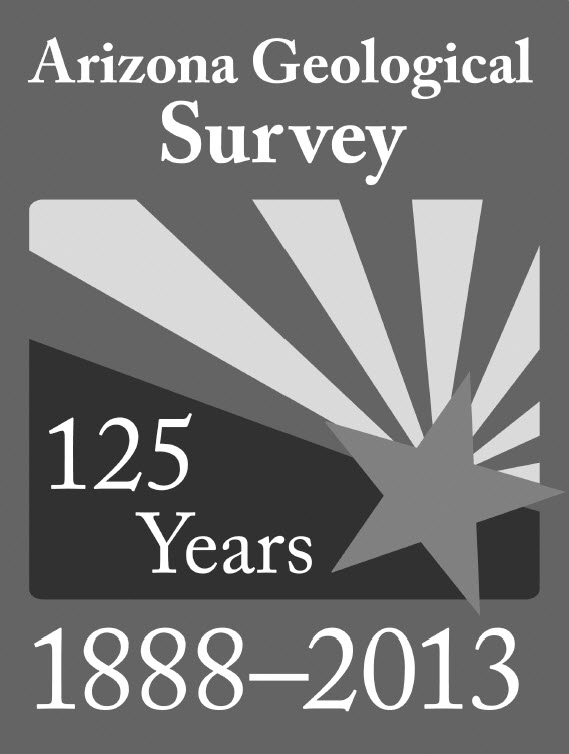Mining and Minerals Education Foundation |

ARIZONA GEOLOGICAL SURVEY
CELEBRATING 125 YEARS FROM 1888-2013
2013 Special Citation
The Arizona Geological Survey (AZGS) celebrates its 125th Anniversary this year. In 1888, the U.S. Congress first created the post of Territorial Geologist of Arizona – we trace our roots back to this appointment! This unpaid position of Territorial Geologist went to John F. Blandy who served until the mid-1890s. From this audacious start came the present-day Arizona Geological Survey and its predecessor agencies listed here in chronological order from youngest to oldest:
- Arizona Geological Survey (1988-Present)
- Arizona Bureau of Geology and Mineral Technology (1977-1988)
- Arizona Bureau of Mines (1915-1977)
- The University of Arizona Bureau of Mine (1893-1915)
- Office of the Territorial Geologist (1888-1990)
In 1915, the Arizona Bureau of Mines was established at the University of Arizona with Charles Willis as its first director. The focus then was on characterizing Arizona’s economic minerals and rocks: asbestos, building stone, copper, molybdenum, lead, zinc, silver, gold and more. The first Geologic Map of Arizona was published in 1924 in cooperation with the U. S. Geological Survey.
The Arizona Geological Survey was established as an independent state agency on July 1, 1988 and still maintains strong collegial ties with the faculty and staff at the University of Arizona. In 1991, the AZGS became the institutional home of Arizona’s Oil & Gas Conservation Commission – a five member commission charged with supporting and monitoring oil and gas exploration in the state. In 2011, the Arizona Department of Mines & Mineral Resources (ADMMR) merged with the AZGS. As an outgrowth of the merger, AZGS is engaged in a multiyear effort to digitize and post on line ADMMR’s extensive collections of mining and mineral resource files, maps and photographs.
Over the past 125 years, AZGS has grown and evolved but our core mission of serving as a primary source of geological information to enhance public understanding of the State’s geologic character, geologic hazards and mineral resources remains unchanged. We continue to advise and assist the public and private industry as well as local, state and federal government in matters of geological processes that impact the State and continue to provide technical advice and assistance in the wise development and prudent use of Arizona’s mineral and land resources.
